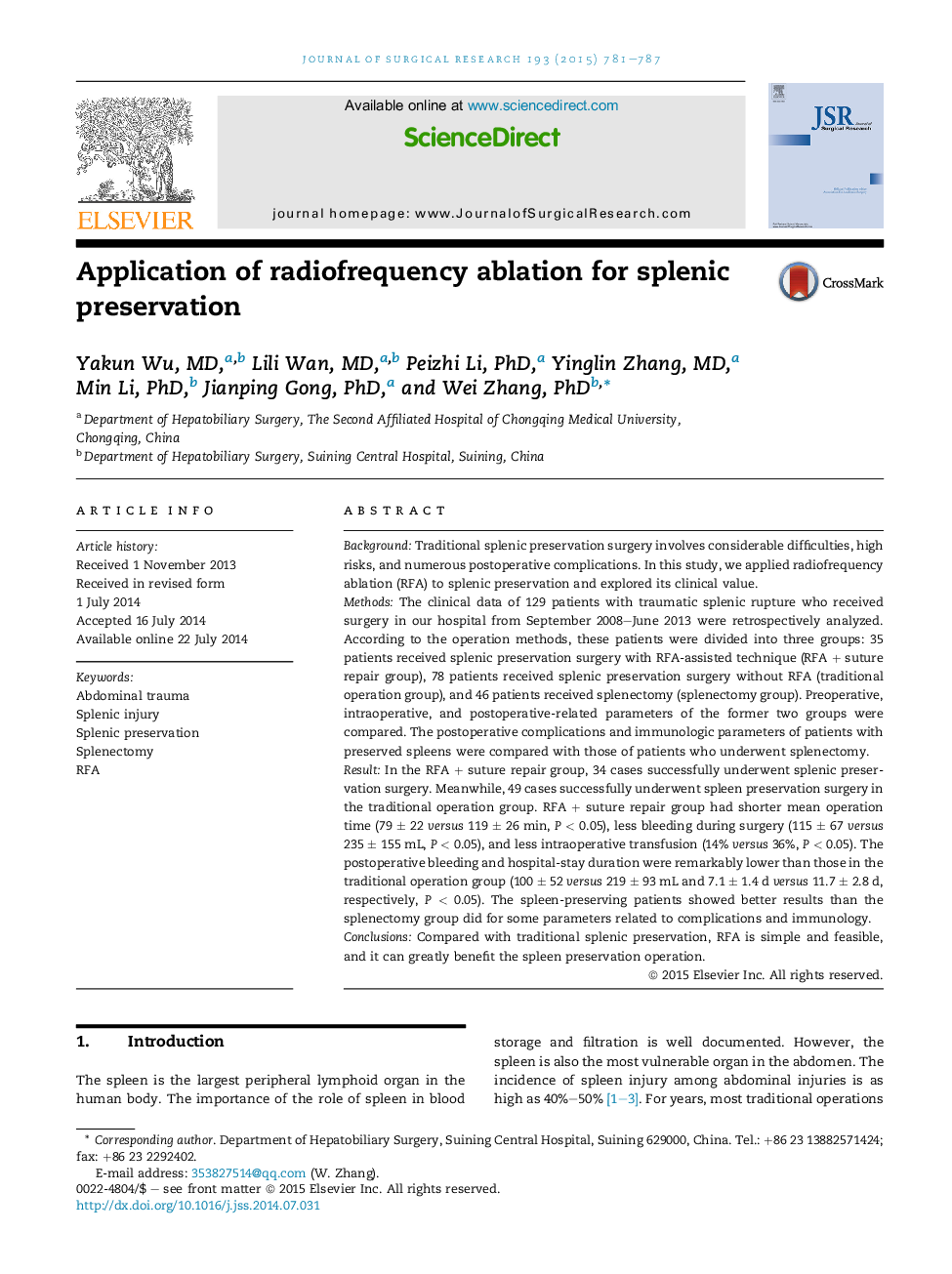| کد مقاله | کد نشریه | سال انتشار | مقاله انگلیسی | نسخه تمام متن |
|---|---|---|---|---|
| 6253639 | 1288401 | 2015 | 7 صفحه PDF | دانلود رایگان |
BackgroundTraditional splenic preservation surgery involves considerable difficulties, high risks, and numerous postoperative complications. In this study, we applied radiofrequency ablation (RFA) to splenic preservation and explored its clinical value.MethodsThe clinical data of 129 patients with traumatic splenic rupture who received surgery in our hospital from September 2008-June 2013 were retrospectively analyzed. According to the operation methods, these patients were divided into three groups: 35 patients received splenic preservation surgery with RFA-assisted technique (RFA + suture repair group), 78 patients received splenic preservation surgery without RFA (traditional operation group), and 46 patients received splenectomy (splenectomy group). Preoperative, intraoperative, and postoperative-related parameters of the former two groups were compared. The postoperative complications and immunologic parameters of patients with preserved spleens were compared with those of patients who underwent splenectomy.ResultIn the RFA + suture repair group, 34 cases successfully underwent splenic preservation surgery. Meanwhile, 49 cases successfully underwent spleen preservation surgery in the traditional operation group. RFA + suture repair group had shorter mean operation time (79 ± 22 versus 119 ± 26 min, P < 0.05), less bleeding during surgery (115 ± 67 versus 235 ± 155 mL, P < 0.05), and less intraoperative transfusion (14% versus 36%, P < 0.05). The postoperative bleeding and hospital-stay duration were remarkably lower than those in the traditional operation group (100 ± 52 versus 219 ± 93 mL and 7.1 ± 1.4 d versus 11.7 ± 2.8 d, respectively, P < 0.05). The spleen-preserving patients showed better results than the splenectomy group did for some parameters related to complications and immunology.ConclusionsCompared with traditional splenic preservation, RFA is simple and feasible, and it can greatly benefit the spleen preservation operation.
Journal: Journal of Surgical Research - Volume 193, Issue 2, February 2015, Pages 781-787
